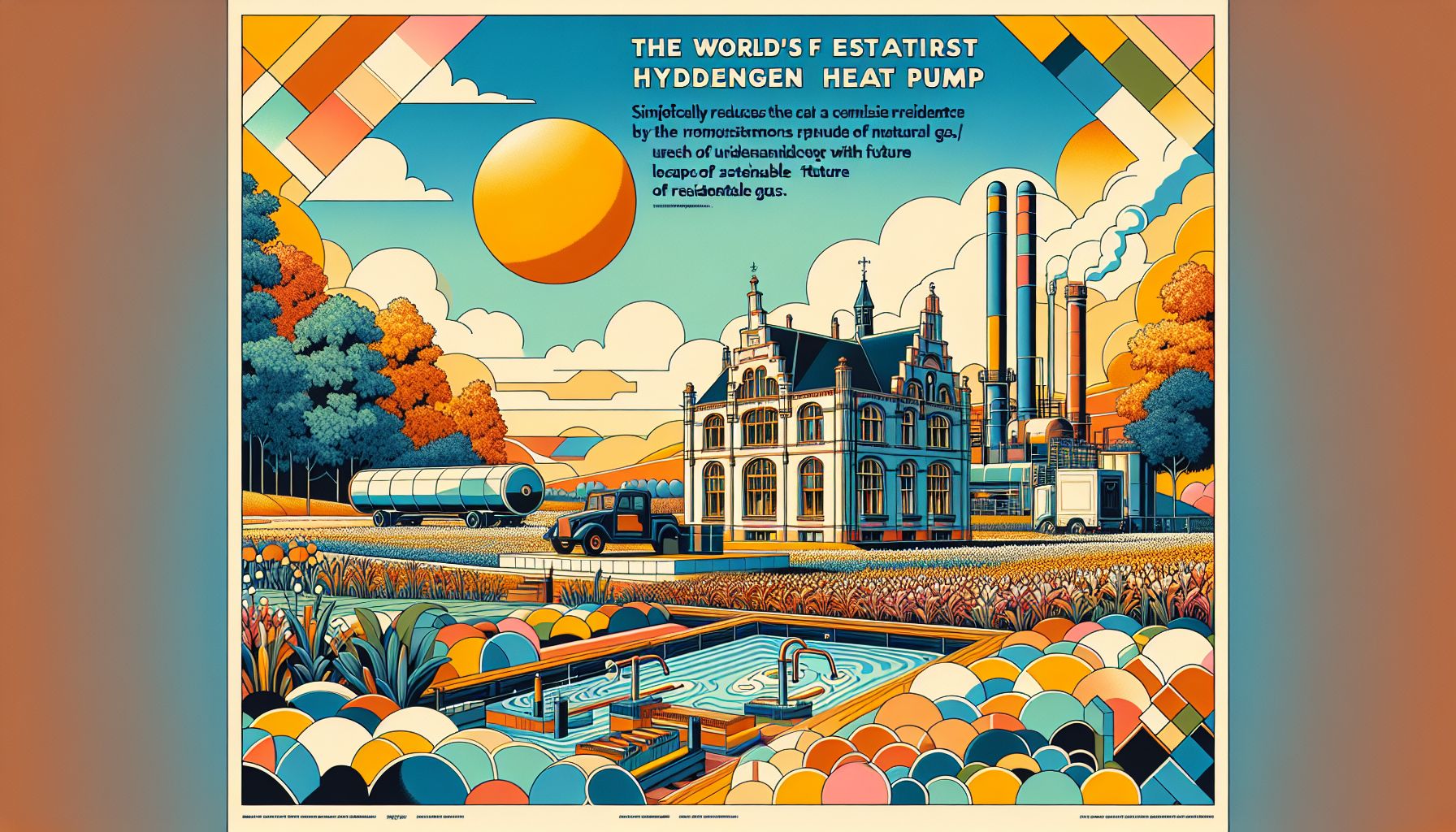Cooll Unveils World's First Residential Hydrogen Heat Pump

Netherlands, Friday, 24 January 2025.
Dutch company Cooll has introduced an innovative hydrogen heat pump, significantly reducing natural gas use by 30-40%, representing a sustainable future for residential heating solutions.
Revolutionary Technology Demonstration
In a groundbreaking development, Cooll, a Dutch technology company based in Hengelo, has successfully demonstrated the world’s first non-industrial hydrogen heat pump [1][2]. The system has been operational since December 23, 2024, heating a demonstration house in Groningen using 100% hydrogen [4]. This innovation represents a significant milestone in sustainable residential heating, achieving a remarkable 30 to 40 percent reduction in fuel consumption compared to traditional heating systems [1].
Technical Achievement and Collaboration
The development of this revolutionary heating system stems from Cooll’s expertise as a University of Twente spin-off, established in 2009 [2][3]. The project’s success is attributed to collaborative efforts between several key organizations, including RVO, GasTerra, and Entrance in Groningen [1]. The system operates efficiently with high-temperature radiators, making it particularly suitable for existing homes that are typically challenging to decarbonize [1].
Market Implementation and Future Plans
Cooll is actively preparing for market introduction, with plans to begin mass production in 2025 [3]. The company is targeting initial deployment across the Netherlands, Belgium, and the United Kingdom [1]. According to Johannes Burger, Technology Director at Cooll, this innovation comes at a crucial time as the electricity market faces increasing constraints [1]. The company’s production facility, located at Radartoren B17 in Hengelo’s High Tech Systems Park [2], is being prepared for the manufacturing scale-up scheduled to commence after summer 2025 [3].
Environmental Impact and Efficiency
The heat pump exclusively utilizes green hydrogen, produced through water electrolysis, ensuring zero CO₂ emissions during operation [4]. This technology achieves a significant reduction in gas usage and carbon emissions, ranging from 25-40%, without increasing electricity consumption [2][3]. Testing conducted at the Groningen facility has confirmed that the system’s performance consistently matches that of conventional natural gas systems throughout the year [1].

